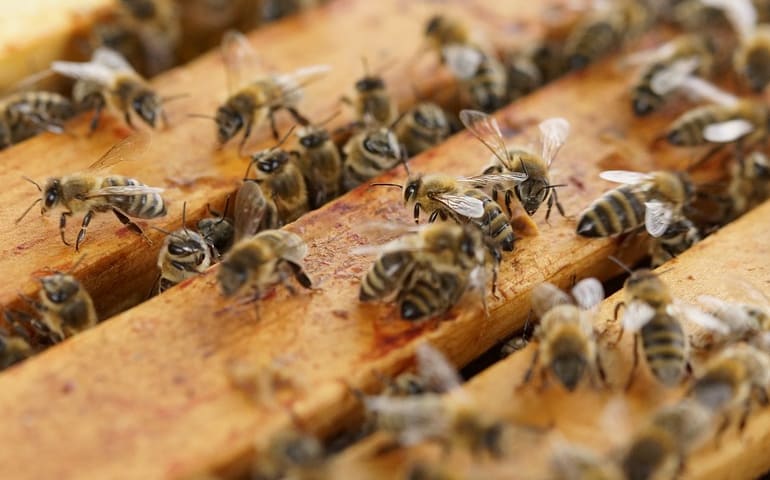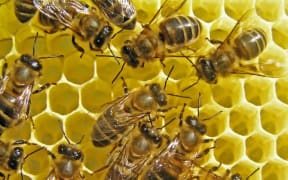Trade Me is putting tougher rules in place around the sale of bees and beehives on its site, to make sure people are complying with the law.

Photo: supplied
Last month, RNZ reported on growing concerns among the beekeeping community that the lack of regulation on the online auction site could be putting the bee population at risk.
By law, beekeepers and their hives must be registered, to keep track of and control the spread of pests and diseases that could decimate the bee population.
When people are selling bees, they must be able to provide their registration number, but there has been no requirement on Trade Me to do this.
That had many in the beekeeping community worried that unregistered beekeepers were using the site to sell bees to unsuspecting buyers.
Chief executive of Apiculture New Zealand Karin Kos said those concerns were raised with Trade Me.
"Having that beekeeper registration is really part of the process of managing our pests and disease. It's a legal requirement and it's really important.
"For us, not to have that as part of the selling experience, we thought was a problem," she said.
From next month, bees and beehives will go on Trade Me's restricted items list.
That means sellers will have to comply with new rules, including putting their beekeeper registration number in their listings, the site's trust and safety team leader James Ryan said.
"It becomes a requirement of using Trade Me, if people don't comply, they won't be able to make listings in the future."
There would be consequences for those who don't follow the rules, Mr Ryan said.
"This is all about the prevention of the spread of disease, so if people don't want to get on board with that, we don't want them using Trade Me."
One new beekeeper, Allan Johnston, found out the hard way when he purchased bees on Trade Me.
He bought a small colony of bees - known as a nucleus - on the site, but when it was delivered, he discovered it wasn't up to scratch.
When he sought a second opinion he was told he'd been ripped off and he should return them.
Mr Johnston said the new rules were a good idea - especially for new beekeepers like him.
"It's a step in the right direction, people need to be vigilant and they need to know that they're buying stuff with confidence it doesn't have American foulbrood, among other diseases."
But after his last experience, Mr Johnston said he was still wary of buying bees on Trade Me.
"It was a real headache, and seeing other people having the same issues, I would say find a mentor and let them direct you where to buy bees."
There has been a big increase in the number of people getting involved in beekeeping. According to Apiculture New Zealand, the number of registered hives in New Zealand has doubled in the last five years from 400,000 to 800,000.
But Karin Kos said new beekeepers needed to be aware of their legal requirements.
"It does come with responsibility and that responsibility is very much around managing the diseases like American foulbrood," she said.
"Having registered beehives and being aware of what you need to do is really important, so that we can actually keep and retain a very healthy bee population in New Zealand."
The Trade Me rule change will come into effect on 12 March.



